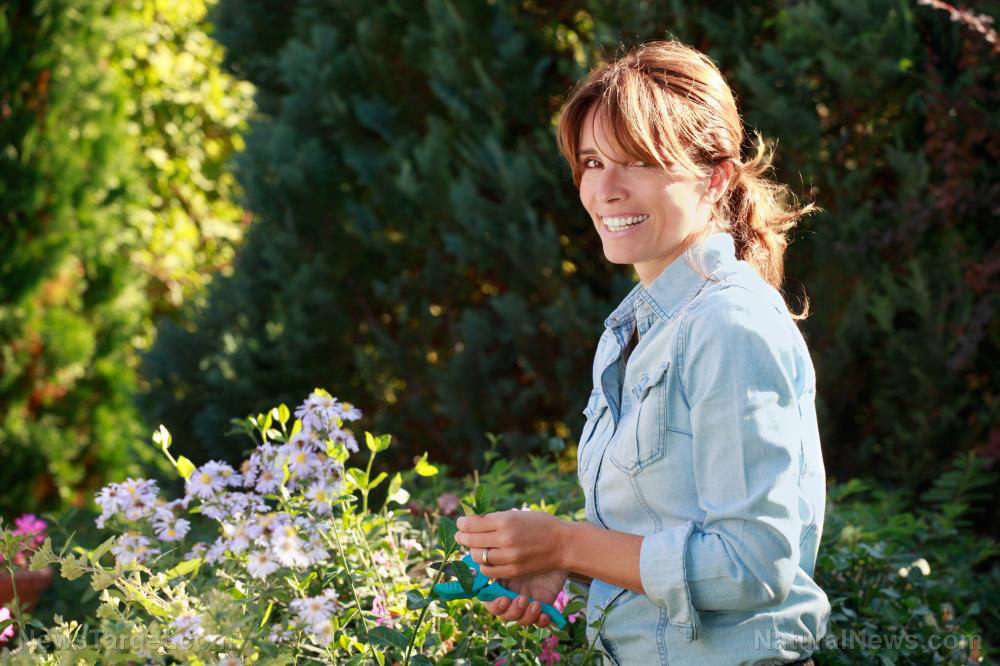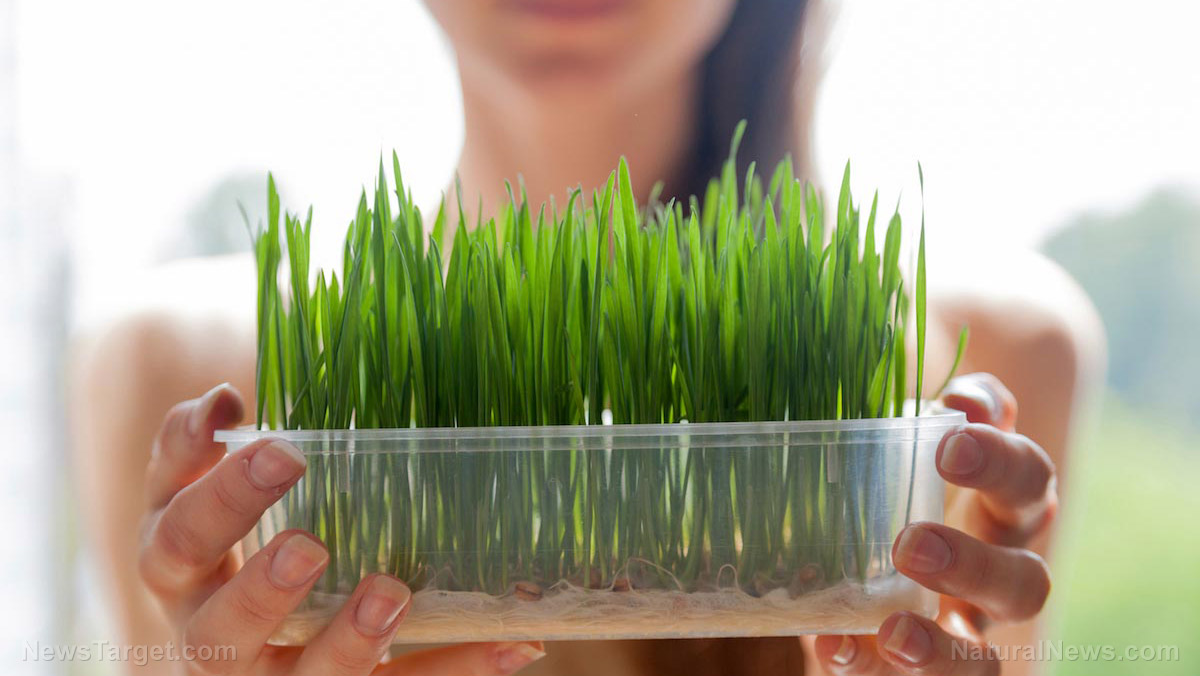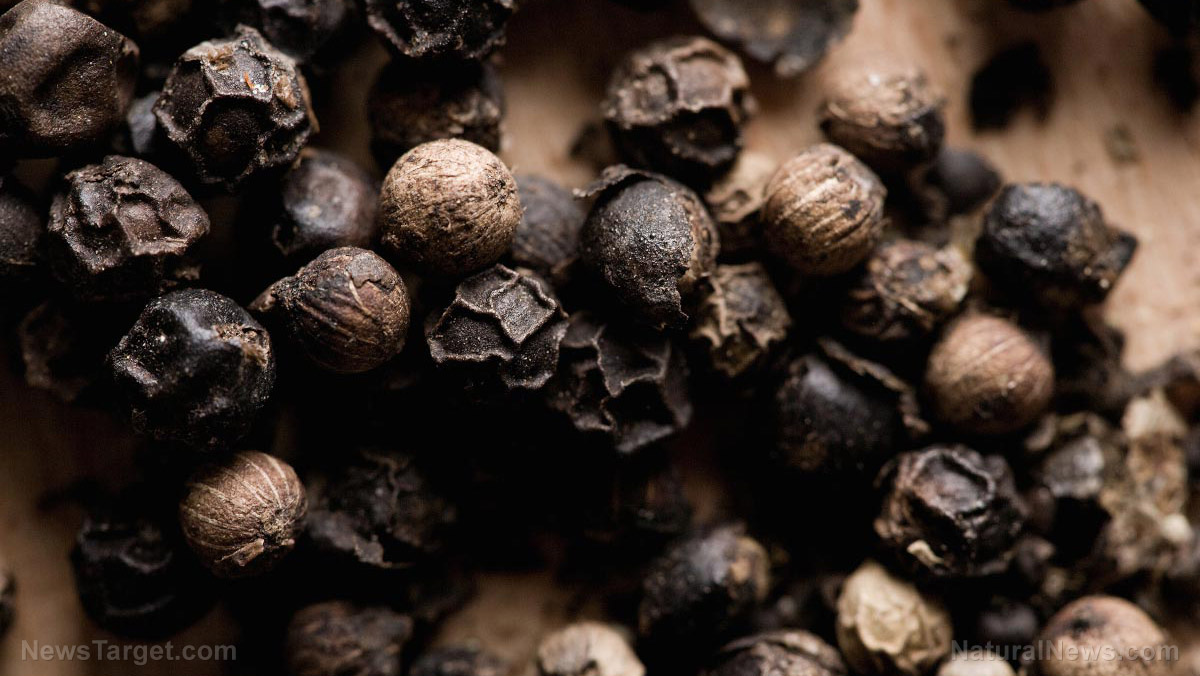Flower power: 13 Reasons why plants can improve your mood
03/24/2020 / By Zoey Sky

Plants do more than beautify your lawn or living room. As a bonus, taking care of houseplants can also help promote mental health.
Don’t believe it? Read on for more details on how gardening can boost your mood and make a normal day greener and brighter.
Bring nature indoors
Make any room greener with a beautiful plant. Growing houseplants right in your living room is an easy way to bring nature closer to home.
Try gardening to help reduce anxiety, nervousness and tension.
Aside from being living decor, the plants below can also help improve air quality in your house:
- Aloe vera
- Areca palm
- English ivy
- Ficus
- Lady palm
- Rubber plant
Meditate
Meditation isn’t all about sitting in a quiet room. Even activities like gardening, which involves lots of repetitive tasks that can have a calming effect on you, can be treated as a form of meditation.
Gardening also puts you in contact with soil, which is good for your microbiome. Outdoor gardening boosts your levels of vitamin D and sunshine and exposes you to fresh air.
Forest bathing promotes mental health
With forest bathing, you can lower cortisol, the stress hormone. Spending more time in nature also lowers blood pressure and boosts parasympathetic activity or the “rest and digest” system. (Related: Reduce stress, improve health as you age by taking up gardening.)
Emulate a plant’s disposition
Plants are stationary but they have personalities too. Plants are often calm and quiet.
If you’re having a stressful day, try to calm yourself by matching a plant’s disposition. See if looking after a plant can help you catch its mood.
Notice plants and be more mindful
The practice of “noticing” helps improve your mindfulness and awareness.
Set aside a couple of minutes in your busy schedule to admire and notice your houseplants to develop your mindfulness skills and be more present in each moment.
Rescue plants
Did you know that plants also need rescuing? Saving a sick or abandoned plant is a simple way to give back and make your life more meaningful.
Appreciate the resilience of plants
Plants are known to be resilient.
Even weeds can grow in the soil beneath concrete, and if you’re having a difficult day, take a look at nature and try to be more resilient like a plant taking root in rocky soil.
Join or start a community garden
Community gardens are a great source of organic produce. Joining a community garden can also help you meet new friends and reduce feelings of depression.
Go to plant swaps
Plant swaps are another great way to get social while being exposed to new kinds of plants. Check if there are plant swaps near your area and meet more fellow plant lovers.
Learn gratefulness by appreciating what plants do for you
You rely on plants for various things: From wood that is used to build your home, to cotton that is turned into clothing to the food that nourishes your body.
Spend a minute or two each day to practice gratitude and be more mindful of the resources that you use each day.
See plants as beings
If you live in an apartment that doesn’t allow pets, consider growing some plants. Like humans, plants grow well with the proper nourishment and even companionship, or at least a symbiotic relationship with a caring human.
Recreate a plant’s story
When you’re feeling blue, take an object that’s made from a material derived from plants, like your favorite book or a comfy cotton shirt, and trace its journey from a plant to the final product.
This interesting mindful exercise can help you feel more interconnected with every living thing. It can also teach you to be more mindful of how you live.
Treat plants as friends
They can’t talk back when you’re pouring your heart out to them, but growing plants can help you feel less lonely.
Growing plants can also teach you the value of kindness, especially since you’re caring for a living being that relies on you for water and a bit of TLC.
When you’re feeling stressed, turn to plants for a much-needed mood boost.
Sources include:
Tagged Under: calm, gardening, green living, harvest, home gardening, Meditation, mental health, Mind, mood, Natural, Plants, relaxation, stress level



















